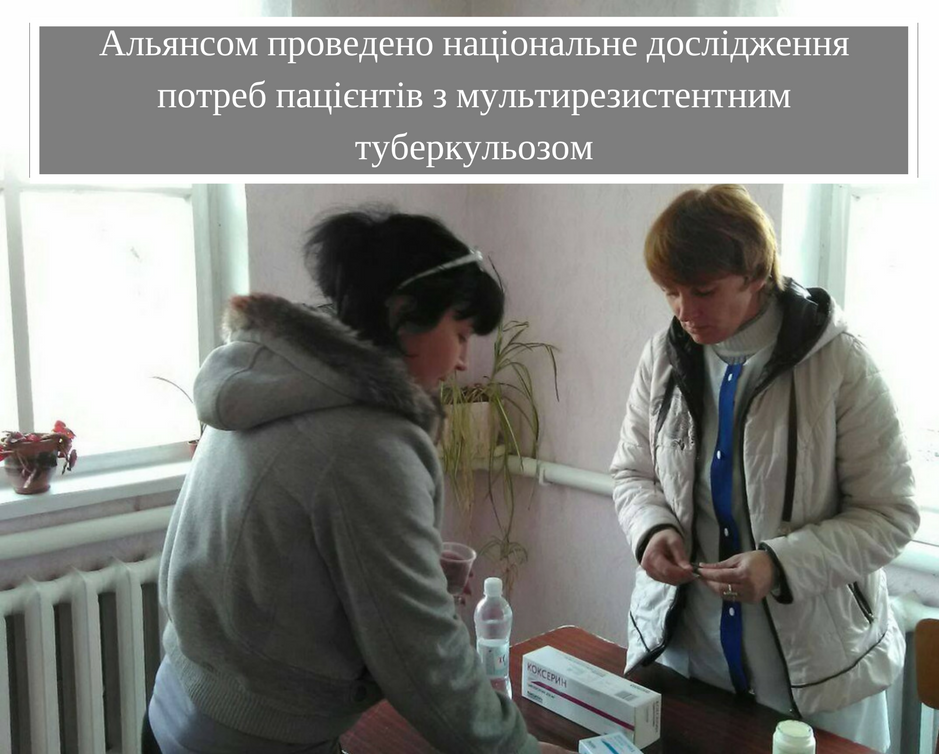An important aspect of patient-centered TB care is the focus on the individual needs of each patient, convenience and safety for him. Such care should take into account the personal and social conditions of human life, and not only the requirements of medical treatment. People-centered care considers the patient to be the central figure in the continuum of care.
In order to define the full range of MDR-TB patients’ needs Alliance for Public Health conducted the operational research. The research was carried out among the participants of the project “Strengthening the provision of quality outpatient care for MR-TB patients by providing medical, social, psychological services and forming treatment adherence”, implemented by the Global Fund to Fight AIDS, Tuberculosis and Malaria in 2015-2017, in partnership with the Red Cross Society of Ukraine. Within the above project was proved that through a combination of medical, social and psychological support the cure rate was doubled up: over 80% of MDR-TB patients recovered (with an average cure rate in Ukraine about 40%).
A total of 427 respondents from among more than 7000 project patients from the most regions of Ukraine were selected to participate in the study.
67.2% of respondents were men; the average age of patients was 42 years. At the same time among women there is a greater patients’ proportion of in the age group of 18-29 years, and among men – 50-59. 14.6% of respondents have higher education, 11.3% – with incomplete secondary education. The vast majority of respondents (60.8%) are not married. The financial situation of the patients’ families is characterized mainly as an average for 50.9% of the respondents.
The vast majority of research participants (80.8%) emphasized that after diagnosis, they were informed by the phthisiologist about the possibility and conditions of outpatient treatment from the first day. 5,6 % of respondents promptly started the outpatient treatment, while in the oblast centers proportion of such patients – 11.3% of the total. Almost all participants of the program arrange the place for receiving drugs (89.2% received TB drugs at home, 11, 9% – in the clinic, in another place – 13, 1 %.)
Certainly, the disease affects patient’s contacts with the social environment. Thus, 11, 3% of respondents felt that they were turned away and avoided after they became aware of the diagnosis. However, 25, 0% of patients felt truly supported.
More than the third part of respondents said that they felt the need to communicate with other patients for mutual support. More than 12% of respondents, including mostly women, need to communicate with a psychologist. The most frequent of illness-related worries is disability (65.8%). Among others there are fears of infecting others, as well as the worries of not recovering from the disease.
Among the general patients’ wishes for the improvement of outpatient TB care the following were highlighted: availability of free medicines and vitamins; better quality and volume of product sets; material support to patients; the opportunity to undergo a comprehensive body check-up; solving legal issues; compensation of transport expenses; reduction of side effects of medicines and medication load during treatment; provision of sanitary and physiotherapy treatment.
We hope that further consideration of the research results and recommendations will be concurrently promote improvement of both the quality of MDR-TB treatment as well as lifestyle of thousands of people who are faced with these problems!
You can find the full report on the research results by the following link.

